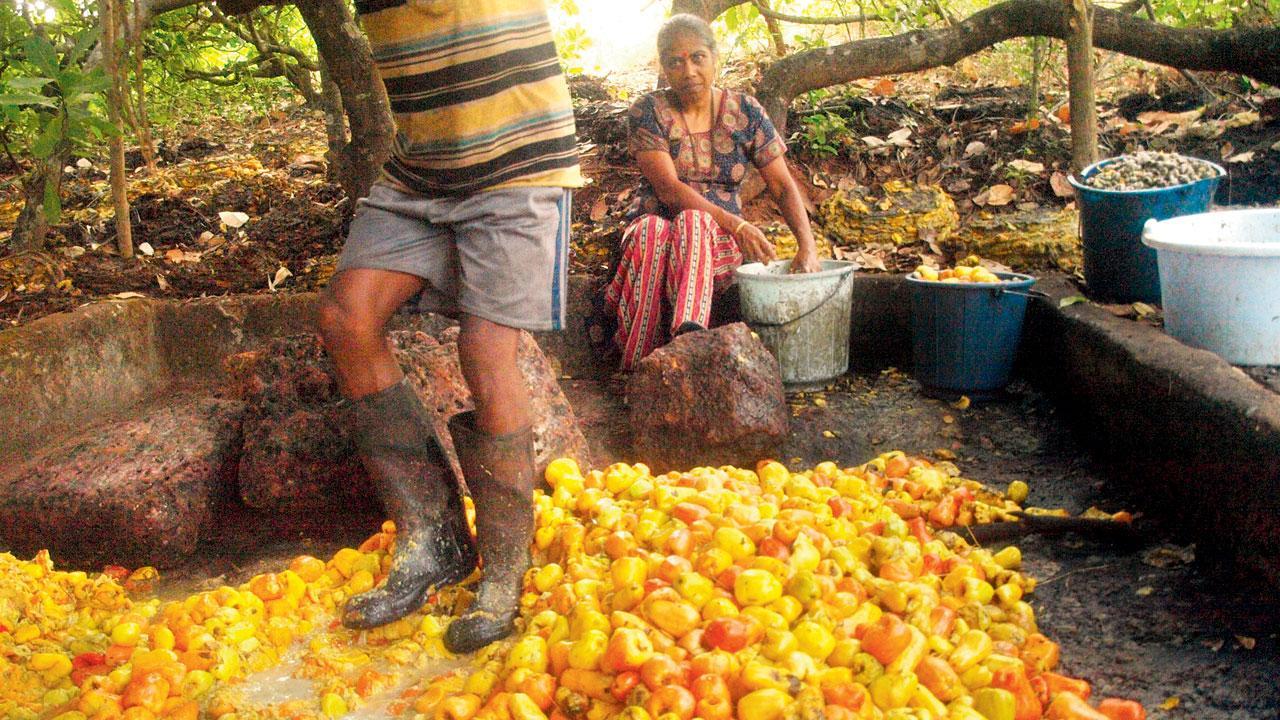As we negotiate challenging times in the aftermath of the pandemic, a book that releases today vouches for and dissects the Goan way of life to seek contentment and relaxation

The process of making feni, a Goan drink, is about being one with nature
Although it might seem like one, Susegad is not a self-help book. Author Clyde D’Souza who has written the title that releases today, says it’s an account of everything he loves about Goa, the state he hails from. As Goans, we’ve witnessed the caricaturisation of a word that is intrinsic to our identity. Susegad, in Konkani, stems from the Portuguese word ‘sossagado’ or in English, ‘quiet’. Over time, the term has been addled with a new translation — laziness. D’Souza addresses this in the book, too, but puts the spotlight on all the goodness of the state and its people that it encapsulates.
D’Souza, a creative director who works in Mumbai, was approached by publisher Penguin Random House India to write this book. D’Souza dives into the history of the state, before unpacking the term in depth by touching upon Goa’s food, music, traditions and lifestyle, and interviews with prominent Goenkars like musician Remo Fernandes, artist Subodh Kerkar and heritage feni maker Hansel Vaz. D’Souza captures susegad as a balanced way of life with three elements:
Culture: The mix of the Indian Hindus and Portuguese Catholics was key to finding peace.
Climate: The humidity in Goa can make one sluggish in the afternoons and that’s when Goans take their afternoon siesta, which is where the ‘lazy’ label comes from. “While Goans do take their afternoon siesta, it’s not like they don’t work when they are not taking their siesta. Now, even science tells us that an afternoon nap is beneficial,” D’Souza says.
The book also comprises facts about Goan dishes, like bebinca. Pics/Wikimedia Commons
Habits: Goans are respectful towards the environment and their habits and rituals are rooted in it — take the drying of Bombay Duck or ‘bombil’, for instance, that is carried out before the arrival of the monsoon, when fishermen can’t head into the sea.
Key tips
To incorporate the susegad way of life, D’Souza suggests you follow the three M’s: meditation, mindfulness and living in the moment. “Meditation is synonymous with sitting down, breathing and chanting. But it could also mean cooking your favourite dish. Mundane things are meditative,” he explains. Mindfulness, he adds, is to simply acknowledge a situation — good or bad — instead of dwelling on what could be.
To live in the moment, on the other hand, is to be conscious of yourself and your environment; “Goans know the monsoon is coming so it’s time for ‘purumenth’ or stocking on dried, fermented, salted or vinegary food,” D’Souza shares.
Clyde D’Souza
What D’Souza calls ‘in-sourcing’ is another nuance to susegad. A lot of urban folk, he believes, have started outsourcing too many things, contrary to what Goans do — like plucking their own mangoes and pickling them. D’Souza elucidates why this is key to achieving susegad: “What was supposed to be convenient has now become a discomfort. Like, first you start outsourcing your ‘jhaadu pocha’. At the beginning it sounds good but then you start outsourcing everything — you ‘Uber it’ or ‘Zomato it’. Eventually, we’ll be outsourcing our lives and there won’t be anything to do. Doing things yourself keeps you content, and you won’t have time to ponder on things that make you sad.”
D’Souza says that writing this book was therapeutic for him. It’s an experience, he hopes, readers will take away with them, too.
What the Goans say
For chef-restaurateur Meldan D’cunha of Bandra’s Soul Fry, susegad is a term that only comes to life in Goa. “When I think of it, I think of the good life in Goa — the culture, heritage, and the way of life associated with the old days. It is all about being happy and it’s a philosophy I still practise in life. It’s about being happy and is intrinsic to Portuguese influences,” he says.
Haima Simoes is a social media-consultant, who along with partner Shruti Venkatesh, made history as the first same-sex couple to be featured on February’s cover of a leading fashion magazine. As someone who shuttles between Mumbai and her hometown Goa, she equates susegad with contentment. “It means, enjoying the little things life has to offer. As much as I enjoy the hustle and working hard, having grown up in Goa, I’ve learnt to draw boundaries — be it work or relationships of any nature. Susegad for me means taking time out for myself, enjoying a good swim at the beach on weekends, taking a break whenever necessary. It doesn’t translate to being lazy or overly laid-back,” she shares.
 Subscribe today by clicking the link and stay updated with the latest news!" Click here!
Subscribe today by clicking the link and stay updated with the latest news!" Click here!









